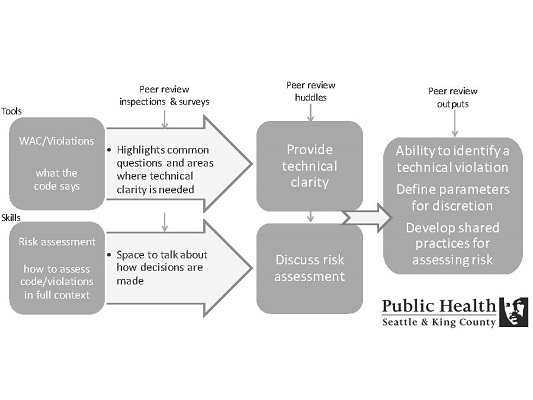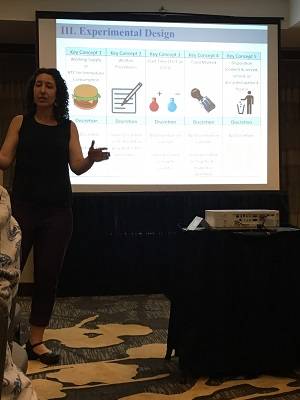
I’m pleased to announce that our latest Building Capacity column can be found in the current issue of the Journal of Environmental Health. Written by our own Darryl Booth (SVP/GM of Accela Environmental Health), this column covers a project we’re exceptionally proud of as it comes from one of our own clients, Seattle & King County Environmental Health in Seattle, Washington.
The Department knew that there was growing interest in publishing health scores from local restaurants. But when leadership began to investigate placarding methods, they identified variations in the data underlying existing scoring systems that they didn’t feel they could ignore.
Luckily, Seattle & King County doesn’t lack for bright minds. Food and Facilities Section Manager Becky Elias contacted Daniel Ho, a preeminent scholar of government data disclosure and administrative law at Stanford Law School. Together, Ms. Elias and Mr. Ho set up a randomized controlled trial to assess the effectiveness of peer review as a method for improving the quality and consistency of inspections, and thus standardize food program inspections and scoring.

Ms. Elias speaking on the experiment this week at the National Environmental Health
Association’s (NEHA) 2016 Annual Education Conference (AEC) to a packed room!
There are so many things I like about this story. Number one, the results were phenomenal both for staff engagement and inspection efficiency (I won’t spoil the ending for you, though).
I was also excited to see the value of external (public/private/academic) partnerships that I’ve heard so much about over the last year or so; together, the County and Mr. Ho accomplished things that on their own would have been out of their reach.
But mostly what stands out to me is that Seattle’s success story is applicable far beyond Environmental Health. If you have staff doing any sort of inspections, you can benefit from these practices.
Intrigued? Check out the June column here.



